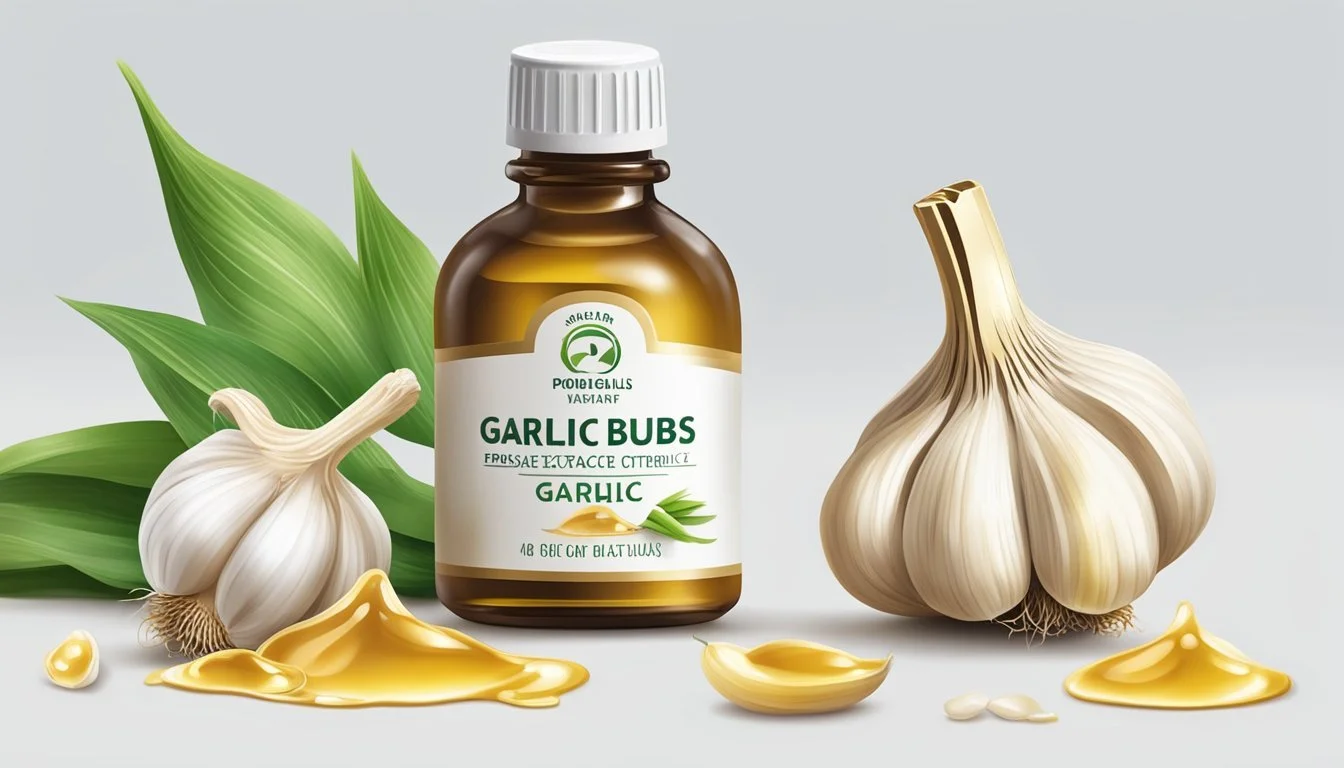How Much Garlic Should You Use for Immune Support
Optimal Dosage Guidelines
Garlic (What wine goes well with garlic?) is renowned not only for its distinct flavor but also for its health benefits, particularly its potential to bolster the immune system. This pungent bulb contains compounds such as allicin, which emerges when garlic is crushed or chewed, that have demonstrated an ability to support the body's defense mechanisms. Given its dense nutrient profile, including vitamins C and B6, manganese, selenium, and other trace minerals, garlic is often cited in discussions about natural health strategies and dietary immunity boosters.
The question of how much garlic one should consume for immune support does not have a one-size-fits-all answer, as individual health needs and sensitivities vary greatly. While incorporating garlic into daily meals can contribute to an overall healthy diet, understanding the balance between adequate intake and potential overconsumption is essential.
Experts generally agree that moderate consumption of garlic, such as adding a clove or two to dishes, can help support the immune system without the risk of negative side effects. However, it's important to consider one's own dietary restrictions and health status when using garlic for its medicinal properties. Despite its benefits, excessive intake of garlic can lead to gastrointestinal discomfort or other issues, thus moderation is key.
The Role of Garlic in Immune Support
Garlic is recognized for its potential in bolstering the immune system, mainly due to compounds like allicin and its antioxidant properties. It may play a supportive role in the function of immune cells and could be beneficial in combating respiratory infections.
Allicin and Its Impact on Immunity
Allicin is a compound that forms when raw garlic is crushed or chewed, initiating a chemical reaction that enhances garlic's antimicrobial effects. This organosulfur compound contributes to immune support by potentially fighting off pathogens and reducing susceptibility to common colds and flu.
Garlic's Antioxidant Properties
Garlic is loaded with antioxidants which help mitigate oxidative stress in the body. Aged garlic, in particular, is high in an antioxidant called S-allyl-cysteine (SAC), which has a long half-life and contributes to the reduction of damage caused by free radicals.
Boosting Immune Cell Function With Garlic
The sulfur-containing compounds in garlic, such as diallyl disulfide, not only support the liver in detoxifying the body but are also associated with an improved immune cell function. By stimulating immune cell response, garlic may enhance the body's ability to fight infections.
Garlic and Respiratory Infections
Incorporating garlic into the diet could have a positive effect on respiratory infections, as its antimicrobial properties fight against bacteria and viruses. Studies suggest that garlic can help reduce the severity of symptoms and possibly shorten the duration of illnesses like the common cold and the flu.
Nutritional Profile of Garlic
Garlic is a potent ingredient commonly used both for its distinctive flavor and its health benefits. Understanding its nutritional composition can aid in optimizing its use for immune support.
Macro and Micronutrients in Garlic
Garlic consists of several macronutrients, including carbohydrates and proteins, and is low in fat. A typical clove of garlic contains about:
Carbohydrates: 2.98 grams
Protein: 0.572 grams
Fiber: Less than 1 gram
These macronutrients play essential roles in the body, from energy production to maintaining immune function.
Vitamins and Minerals in Garlic
Garlic's mineral content includes calcium, phosphorus, potassium, iron, magnesium, and trace amounts of zinc and selenium. For vitamins, garlic provides vitamin C and some B vitamins. Here's a brief overview:
Calcium: Supports bone health and enzymatic activity
Phosphorus: Essential for healthy bones and teeth
Potassium: Important for muscle function and heart health
Iron: Critical for oxygen transport
Magnesium: Involved in over 300 biochemical reactions in the body
Zinc: Vital for immune function and wound healing
Selenium: Has antioxidant properties
Vitamin C: An antioxidant that also supports the immune system
Vitamin B: Group of vitamins that aid in energy metabolism
Caloric Value of Different Garlic Forms
The caloric value of garlic alters with its form - raw, powdered, or minced. For example:
Fresh Garlic: Approximately 4.5 calories per clove
Garlic Powder: Higher calorie count due to less water content
Minced Garlic: Similar caloric value to fresh, but can vary due to added oils in commercial preparations
Caloric content is an important consideration for dietary intake, especially when using different forms of garlic.
Garlic in Diet and Cooking
Garlic, a versatile and potent ingredient, plays a critical role in both diet and culinary practices, offering flavor enhancement and potential immune support.
Incorporating Garlic into Recipes
To effectively use garlic in recipes, one should consider the form of garlic being used: fresh, aged extract, or as an oil. Fresh garlic can be minced, sliced, or crushed and added to various dishes, such as sautéed vegetables, to impart a strong, pungent flavor. For a gentler taste, garlic can be roasted whole in olive oil at a temperature of 350°F (175°C) and later incorporated into recipes.
Creating garlic oil involves cooking whole cloves of garlic at a lower temperature of 250°F (121°C) to avoid burning the garlic while extracting its flavors into the oil. This infused olive oil can then be used as a base for dressings, marinades, or drizzles over cooked dishes, providing a subtler garlic flavor.
Aged garlic extract, often available in supplement form, is less frequently used in cooking due to its specific processing for health supplements. However, it can still be incorporated occasionally for a milder taste in place of fresh or oil-infused garlic.
In conclusion, garlic adds a rich depth of flavor to recipes and is a staple in many diets for its potential health benefits, such as immune support. By understanding how to properly prepare and use different forms of garlic, one can maximize its culinary potential and contribute to a well-rounded diet.
Garlic Supplements and Extracts
Garlic supplements offer a concentrated form of garlic's beneficial compounds, making them a convenient choice for those looking to support their immune system without the pungency of fresh garlic.
Forms of Garlic Supplements
There are various forms of garlic supplements available on the market, each providing a different preparation of garlic designed to maximize its health benefits. Aged garlic extract is widely used for its potential health benefits, as the aging process increases the antioxidant content while reducing the odor commonly associated with garlic. Garlic oil capsules are another option, typically standardized for certain compounds such as diallyl trisulfide. In addition, garlic powder supplements are also common, providing a form that is closer to consuming raw garlic. The choice between these forms often depends on personal preference and the desired health outcome.
Aged Garlic Extract: Often odorless, made by aging raw garlic.
Garlic Powder: Made from dried garlic; retains some of the original compounds.
Garlic Oil: Focused on providing the oil-soluble compounds in garlic.
Optimizing Garlic Supplement Intake
When considering garlic supplements for immune support, it's important to look at the allicin content, which is the main active ingredient believed to deliver garlic's beneficial properties. However, allicin is not actually present in garlic supplements but is produced when garlic is crushed or chopped. Instead, supplements often contain alliin and alliinase, which convert to allicin when ingested. It's also advisable to note the diallyl trisulfide levels, another key compound that contributes to the health benefits of garlic.
Choosing a supplement involves ensuring the product has:
High allicin potential, which indicates the capacity of the supplement to produce allicin.
Sufficient bioavailability, ensuring that the body can absorb and utilize the garlic compounds.
It is essential to follow the manufacturer's dosage recommendations, as this determines the effectiveness of the supplement. Consulting with healthcare providers before starting any new supplement regimen is also encouraged to avoid any potential interactions with other medications.
Health Benefits Beyond Immunity
While garlic is widely recognized for its immune-boosting properties, it also possesses a range of benefits for cardiovascular health, anti-inflammatory effects, and cancer prevention mechanisms.
Garlic and Cardiovascular Health
Garlic is known to have a significant impact on heart health. Studies have shown that garlic consumption can lead to a reduction in blood pressure levels, particularly in individuals with high blood pressure. Additionally, garlic can influence cholesterol levels, specifically by lowering total and LDL (bad) cholesterol, helping to prevent heart disease. Its ability to improve blood vessel health also plays a role in enhancing overall cardiovascular function.
Anti-inflammatory Effects of Garlic
The anti-inflammatory properties of garlic are beneficial in managing inflammatory conditions. Its bioactive compounds can inhibit substances that cause inflammation in the body, thereby providing relief to those suffering from chronic inflammatory diseases.
Garlic and Cancer Prevention
Research into garlic's potential anticancer properties is promising, indicating it may help reduce the risk of several types of cancer, including colon, breast, prostate, lung, and stomach cancer. These protective effects are hypothesized to be due to garlic's ability to counteract cancer cell growth and to induce cancer cell death.
Considerations and Precautions
When using garlic for immune support, one must consider its potential side effects, interactions with medications, and implications in surgical contexts. It is crucial to understand these aspects to use garlic both effectively and safely.
Potential Side Effects of High Garlic Intake
Excessive consumption of garlic can lead to several side effects, varying from mild to severe. Common issues include fatigue, body odor, bloating, and an upset stomach. Although allergies to garlic are rare, they can manifest. High doses of garlic may also exacerbate these conditions.
Garlic Interaction with Medications
Garlic has the potential to interact with certain drugs, particularly blood thinners like warfarin (Coumadin) and saquinavir, a medication used to treat HIV. These drug interactions can lead to increased risk of bleeding or decreased effectiveness of the medications.
Medication Type Possible Interaction Blood Thinners Increased bleeding risk HIV Medications Decreased drug efficacy
Garlic and Surgical Procedures
Before undergoing any surgical procedures, it's essential for an individual to disclose their garlic intake to their healthcare provider. Garlic can influence bleeding and interact with anesthesia, potentially complicating the surgery and recovery process.
Risk of bleeding: Garlic's anticoagulant effects might elevate the risk of bleeding during and after an operation.
Anesthesia interaction: Components in garlic might interfere with anesthetics, necessitating adjustments to dosages.
Conclusion and Summary
Garlic has been recognized for its potential benefits in supporting the immune system. The key compounds, such as allicin, which forms when garlic is crushed or chewed, contribute to its health-promoting qualities. These substances are understood to possess antioxidant, anti-inflammatory, and lipid-lowering properties, which can aid in combating common diseases.
For immune support, individuals should consider the consumption of garlic in its raw form or aged preparations, as these are thought to best retain the therapeutic aspects of the vegetable.
Nutrient Profile:
Calories: Minimal
Proteins & Carbohydrates: Low
Key Minerals: Calcium, Magnesium, Phosphorus
When integrating garlic into the diet for health reasons, moderation is important. An excessive intake may lead to undesirable side effects, though a specific threshold varies among individuals.
In terms of quantity, incorporating two to three cloves of garlic into one's daily diet is a common suggestion found among various health sources, aiming to balance the benefits and minimize potential drawbacks.
Health Benefits Review:
Antioxidant: Helps prevent damage from free radicals.
Anti-Inflammatory: May reduce inflammation markers in the body.
Lipid-Lowering: Could contribute to improved cholesterol levels.
In conclusion, while garlic can be a valuable addition to diets focused on immune system support, it should be consumed in consideration of individual health profiles and dietary balance.





